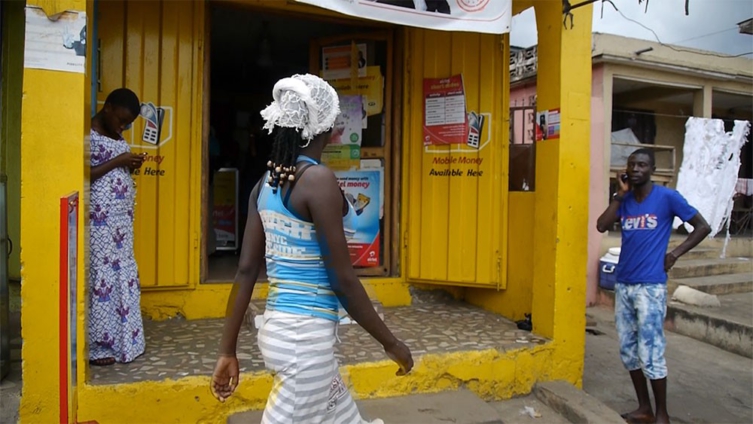Since the inception of mobile money transfer in Ghana in 2009 by MTN Ghana, the service has grown to become an important aspect of our financial services in the country.
The Central Bank and other major stakeholders in the sector identified the service as the best channel to ensure optimum financial inclusion in the country.
The service provides convenience and efficiency to customers and helps to reach out to underserved and unserved segments of the society such as the informal sector, women, youth, and other typically underserved groups.
The 2017 Global Findex database indicated that access to formal financial rose from 41% of adults in 2014 to 58% in 2017 and this was largely attributed to mobile money accounts.
This identified the country as the fastest –growing mobile money market in Africa at the time. According to the Bank of Ghana, as of December 2020, there were some 38.5 million registered accounts with 17.5 million active mobile money accounts in Ghana.
Also, at the same time, there was GH₵571.8 billion value in mobile money transactions alone, this representing 84% growth from the value recorded in 2019.
The introduction of the interoperability platform, one of the first in Africa, has further boosted the service. Evidently, the service has seen an upsurge and has become a cornerstone of the economy.
Moreover, this development has created massive employment avenue for many young people with the introduction of the mobile money merchant business.
Today, in almost every community, mobile money agents are dotted everywhere. Data from the Central Bank suggests that as at 2012 there were 59,000 active agents. This rose to 152,000 in 2017 and as at December 2020, it stood at 344,000 active mobile money agents.
Their existence played a crucial role in the growth the sector has experienced. Also, in a country plagued with high youth unemployment, the service has become an important alternative source of livelihood for many.
Current Situation
However, recent developments against these agents are posing a threat to the economic gains the country has chalked via these services.
The service as an avenue for employment and a major role in financial inclusion is being jeopardized by the spate of robbery attacks on mobile money agents across the country.
Lately, the media has been awash with such stories of huge sums of money lost, gunshot wounds, acid baths, and in some instances death. Mobile money agents are now feeling insecure, living in constant fear for their lives. These are a few examples of such stories;
- In December 2017, cityfmonline.com reported that three persons including an 11year-old boy, sustained gunshot wounds after a mobile money robbery incident at Sahara, a suburb of Accra.
- In December 2018, modernghana.com reported that two persons sustained severe gunshot wounds at Busia Junction near Odorkor in Accra, following a robbery attack on mobile money joint.
- In March 2019, citinewsroom.com reported the arrest of two individuals who allegedly robbed and poured acid on a female mobile money vendor at Gomoa Fetteh in the Central Region.
- On August 14th 2020, MyJoyOnline.com reported that a mobile money vendor was shot dead by armed robbers at Techiman for refusing to hand over his cash.
- On August 27th 2020, Joy News reported the death of a mobile money vendor attacked and killed at Ejisu after refusing to hand over his money.
- On September 1st, 2020 Ghanaweb.com reported that two armed robbers attacked a mobile money vendor in Yendi making away with GHC5,300.
- On October 16th, 2020 citinewsroom.com reported the robbery of a mobile money merchant at the Abofour market in the Offinso Municipality of the Ashanti Region leading to a loss of GHC 14,000. On November 7th, 2020 MyJoyonline.com reported that mobile money agents in Walewale announced the suspension of night operations after a series of robbery attacks that has led to deaths in the area.
- On April 12th, 2021 Citinewsroom.com also reported that robbers are terrorizing money vendors in Takoradi. The story indicated that two separate robbery incidents were recorded in one weekend resulting in hospitalization after the vendors sustained gunshot wounds.
- On April 19th, 2021 citinewsroom.com again reported the robbery of a mobile money vendor at Kasoa amid gunshots in the air leading to the loss of some unspecified amount of money.
- On April 23rd, 2021 3news.com reported that four suspected armed robbers attacked a mobile money vendor in Rambo style at Bantama making away with GHC240,000.
Way Forward
Clearly, these are just a few of the many incidents that have been reported and the many more which have possibly not been reported. What is obvious is that, the activities of these mobile agents are under threat.
They have become the target of armed robbers in the country.
Unlike banks that have police officers stationed at every branch, these vendors do not have the luxury of same; neither can they possibly have police presence at every shop. So, a national conversation about the safety of mobile money vendors is necessary.
There is the need to develop an effective guideline for the safety of these operators. Telecom operators must also begin to prioritize the safety of these operators and initiate programs that can eliminate the incidence of robberies.
It is worth mentioning the admirable effort of MTN Ghana who launched an insurance cover for their agents in October 2018. It is worthy of emulation.
Also, our security services must up their game in providing security in the country. Investigations into past attacks and robberies on these vendors must be intensified for the perpetrators to be brought to justice.
Mobile money merchant business has come to stay. It has proven to be providing an invaluable service to the entire country and immensely contributing to our economic growth.
There is therefore the need to confront all challenges associated with this indispensable business. Especially, considering the inevitable growth that is set to come into the industry in the years to come, we must, as a matter of urgency, consider the safety and security of mobile money vendors in the country for their lives and livelihood are at risk.

About the author; Razak Musbau is a Communication Specialist and Social Activist. You can email the writer on zakkwabena81@gmail.com.
Latest Stories
-
BlowChem and Belpak donate assorted products to Chief Imam to mark Eid-ul-Fitr
1 minute -
E-Levy, Emissions Tax and 6 other key bills Mahama signed into law
3 minutes -
Leverkusen stunned by third-tier Bielefeld in German Cup
8 minutes -
ECG missing containers: Energy Ministry seeks AG’s probe, possible legal action
10 minutes -
Tesla’s first-quarter deliveries slump on Musk backlash, weak demand
16 minutes -
‘It is finished’- Finance Minister reacts as Mahama approves abolishing of e-levy and others
21 minutes -
Prosecution amends charges against Ahmed Suale murder suspect
33 minutes -
‘Sit With TrendyRail’ launched to inspire young creatives
39 minutes -
Iva Foreva advocates for end to mental health stigmatisation
44 minutes -
Lighthearted: Please-ing isn’t pleasing
44 minutes -
Stonebwoy’s management demands apology from DJ Lord over Accravaganza allegations
52 minutes -
Ade Coker dares Ntim Fordjour over alleged drug trafficking flight claims
57 minutes -
EBQ writes: London’s “still water”, Ghana’s muddy rivers
1 hour -
Napo supports Adum PZ fire victims with GH₵50,000 and 500 bags of cement
1 hour -
Kevin Taylor blown away by Trey La’s ‘Kevin Ekow Taylor’ EP
1 hour

